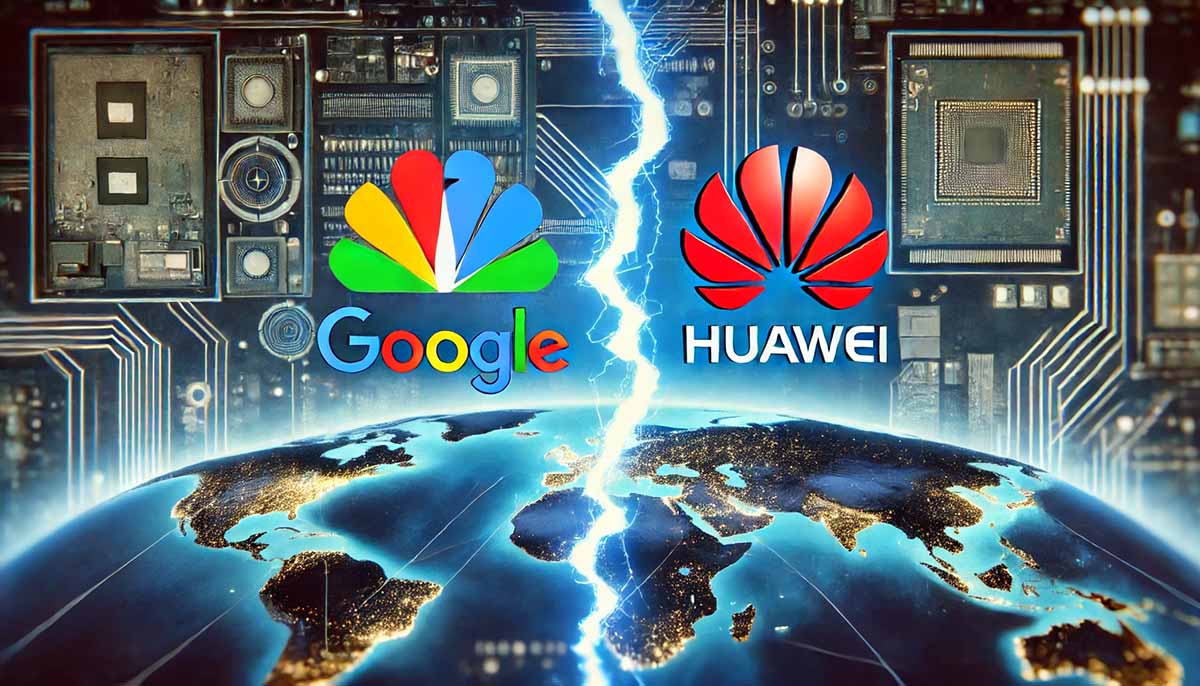In the ever-evolving world of technology, major shifts often happen in the blink of an eye. One of the most significant and highly publicized changes in recent years was the halting of Google’s business relationship with Huawei, the Chinese telecommunications giant. This move came amid growing global tensions between the United States and China, particularly surrounding national security concerns, and had far-reaching effects on both companies and the global tech industry at large. https://todoandroid.live/google-dice-adios-a-huawei
This article will delve into the circumstances leading up to Google’s decision to sever ties with Huawei, the impacts of this decision on both companies, and what it means for the future of the tech industry. Additionally, we’ll examine the broader implications of geopolitical tensions on global trade and technological development, particularly in the context of the US-China rivalry.
1. The Rise of Huawei: A Global Powerhouse
Huawei, founded in 1987 by Ren Zhengfei, has grown from a small Chinese startup to one of the largest telecommunications and consumer electronics companies in the world. With a strong presence in over 170 countries, the company is a major player in the global tech industry, particularly in the fields of 5G technology, smartphones, and networking infrastructure.
Huawei’s smartphones, in particular, gained significant market share worldwide, challenging the dominance of Apple and Samsung in the mobile sector. The company was able to rapidly expand its footprint, largely due to its advanced hardware, competitive pricing, and the support of the Chinese government.
However, Huawei’s rise came with growing scrutiny, especially from the United States, which began to view the company as a national security threat. These concerns were centered around allegations that Huawei could be using its products and network infrastructure to spy on behalf of the Chinese government, a claim the company has consistently denied.
2. Google’s Relationship with Huawei: A Complicated Partnership
For years, Google and Huawei maintained a fruitful relationship. Huawei’s smartphones, like those in the P and Mate series, used Google’s Android operating system, the most widely used mobile OS in the world. Additionally, Huawei’s devices featured Google’s suite of services, including the Google Play Store, Gmail, Google Maps, and YouTube.
This partnership allowed Huawei to remain competitive in the global smartphone market, especially as the company sought to expand outside of China. Google’s Android system provided Huawei with the software infrastructure it needed to power its devices and gain a foothold in Western markets.
However, the growing US-China tensions would soon jeopardize this relationship. As the US government grew increasingly concerned about Huawei’s potential links to the Chinese government and its possible role in espionage, it began taking action to curb the company’s influence on the global stage.
3. The US Blacklist and the Impact on Huawei
In May 2019, the Trump administration took a decisive step by adding Huawei to the Entity List, a US government blacklist. This move effectively restricted US companies, including Google, from doing business with Huawei without a special license. The decision was based on national security concerns, with the US accusing Huawei of having close ties to the Chinese government and the potential for its devices to be used for espionage.
For Huawei, the most immediate impact of the blacklisting was the loss of access to Google’s services. This meant that new Huawei smartphones would no longer be able to ship with Google’s Android operating system or access the Google Play Store. This was a devastating blow to Huawei, as Android was integral to its business model and success outside of China. Without access to Google’s software, Huawei was forced to develop its own operating system, HarmonyOS, and its own app ecosystem, which has faced an uphill battle to attract developers and users.
From Google’s perspective, the decision was no less significant. The company’s business relationship with Huawei was a long-standing one, and it had to make a difficult choice in light of the restrictions placed on it by the US government. Google was forced to stop providing Huawei with access to its core services, which had a far-reaching impact on Huawei’s ability to compete in the global market.
4. The Consequences of the Split
The split between Google and Huawei had significant repercussions for both companies, as well as for the broader tech industry.
A. Huawei’s Struggles
Without Google’s services, Huawei’s new devices were severely hampered. The absence of the Google Play Store and popular apps like Gmail, YouTube, and Google Maps made Huawei smartphones far less attractive to consumers, particularly in Western markets. Huawei’s decision to turn to HarmonyOS as an alternative operating system is seen as an attempt to lessen its reliance on Google and the Android ecosystem, but the transition has not been smooth.
Moreover, the US blacklisting affected Huawei’s ability to procure essential components for its devices. Companies like Intel, Qualcomm, and ARM, all of which are American or closely tied to the US, were also forced to cease supplying Huawei with the necessary technology for its smartphones and 5G network infrastructure. This has put Huawei at a significant disadvantage, especially in the 5G race, where the company had been a leader.
In addition to its struggles in the smartphone market, Huawei’s global expansion plans were also slowed. The US government lobbied other countries to ban Huawei from participating in 5G infrastructure projects, citing security concerns. As a result, Huawei has faced barriers to entering markets in Europe, Canada, and Australia, further isolating the company from the global stage.
B. Google’s Position
For Google, the split with Huawei posed both challenges and opportunities. On one hand, losing access to Huawei’s devices meant a reduction in the number of Android-powered smartphones in circulation, particularly in key markets. The loss of Huawei as a partner also presented a potential opening for competitors like Samsung and Xiaomi to gain more market share.
On the other hand, Google had already established a strong foothold in the mobile space, thanks to its dominant position with Android. The company also had the opportunity to pivot towards new ventures, such as expanding its own hardware lineup with the Google Pixel smartphones and focusing on building a more cohesive ecosystem of services and devices.
While the loss of Huawei as a partner was significant, it also underscored the growing tension between the US and China, and Google’s reliance on global supply chains that were increasingly becoming politically charged.
5. The Broader Geopolitical Implications
The Google-Huawei split is just one of many examples of how the US-China trade war and national security concerns are shaping the global tech landscape. As China continues to push forward with its ambitions in fields like 5G, AI, and quantum computing, countries around the world are being forced to pick sides in the tech rivalry.
The fallout from the US’s actions against Huawei also highlights the shifting nature of global trade. As countries face the dilemma of balancing security concerns with economic interests, the tech industry is increasingly becoming a battleground for geopolitical influence. The relationship between technology and international politics will only become more complex as countries navigate issues related to data privacy, security, and technological sovereignty.
Conclusion
The severing of ties between Google and Huawei is a stark reminder of how geopolitical tensions are reshaping the tech industry. For Huawei, the loss of access to Google’s Android system and services was a significant blow that forced the company to adapt quickly. For Google, the decision to comply with US government directives was a necessary, albeit challenging, move.
As the global tech industry continues to evolve, it is clear that political, economic, and security considerations will play an increasingly important role in shaping the future. The Google-Huawei split serves as a cautionary tale of how rapidly things can change in the digital age, with far-reaching consequences for companies, governments, and consumers alike.



